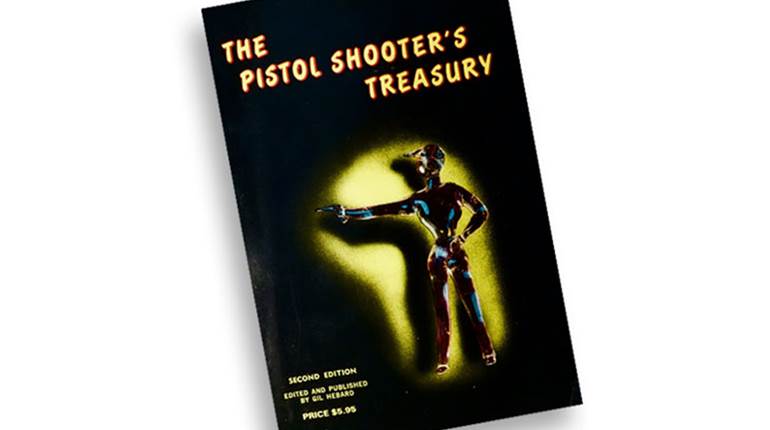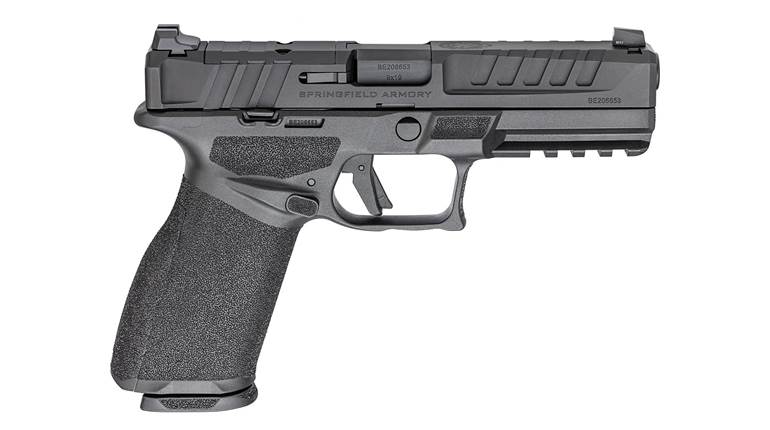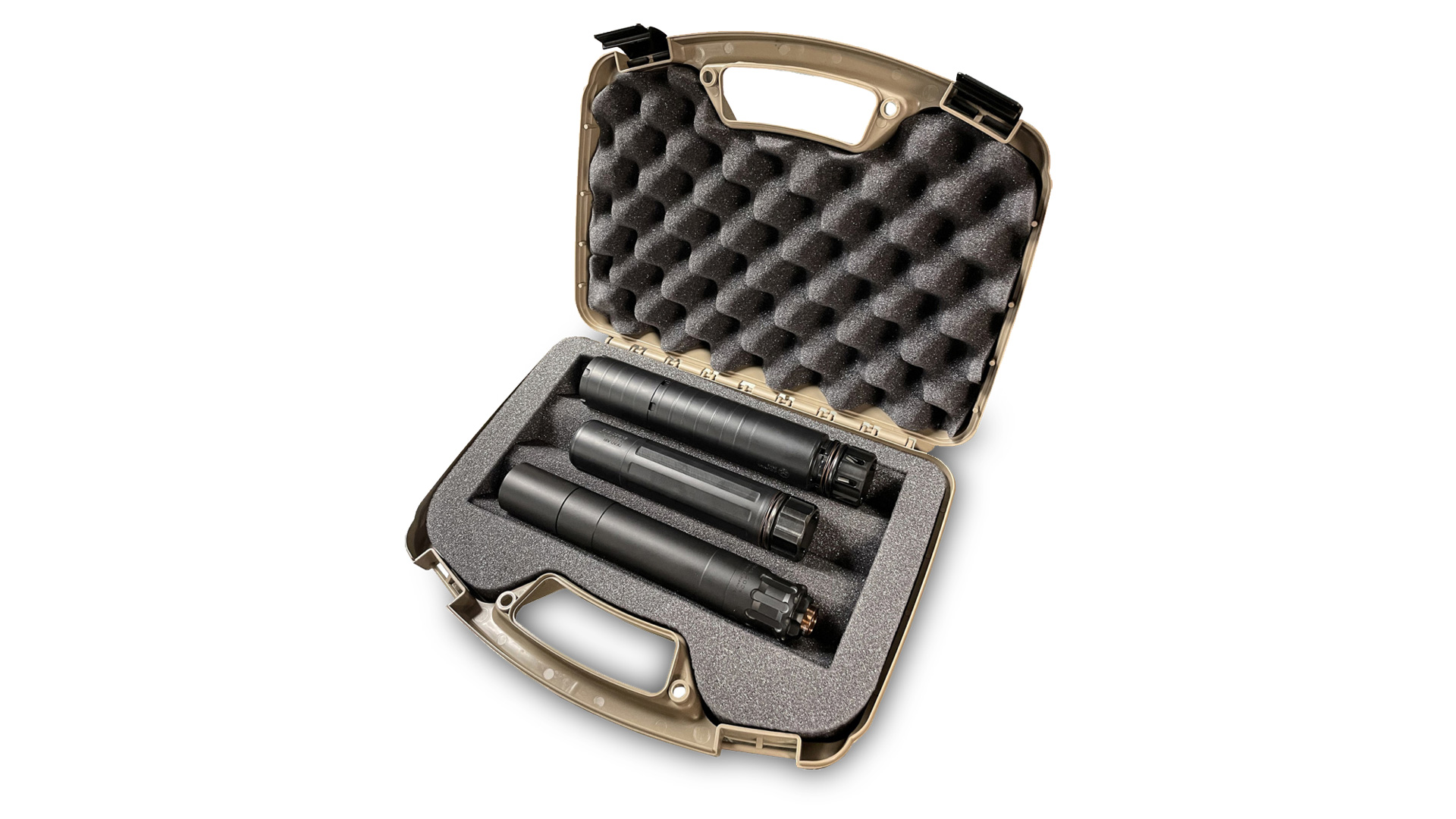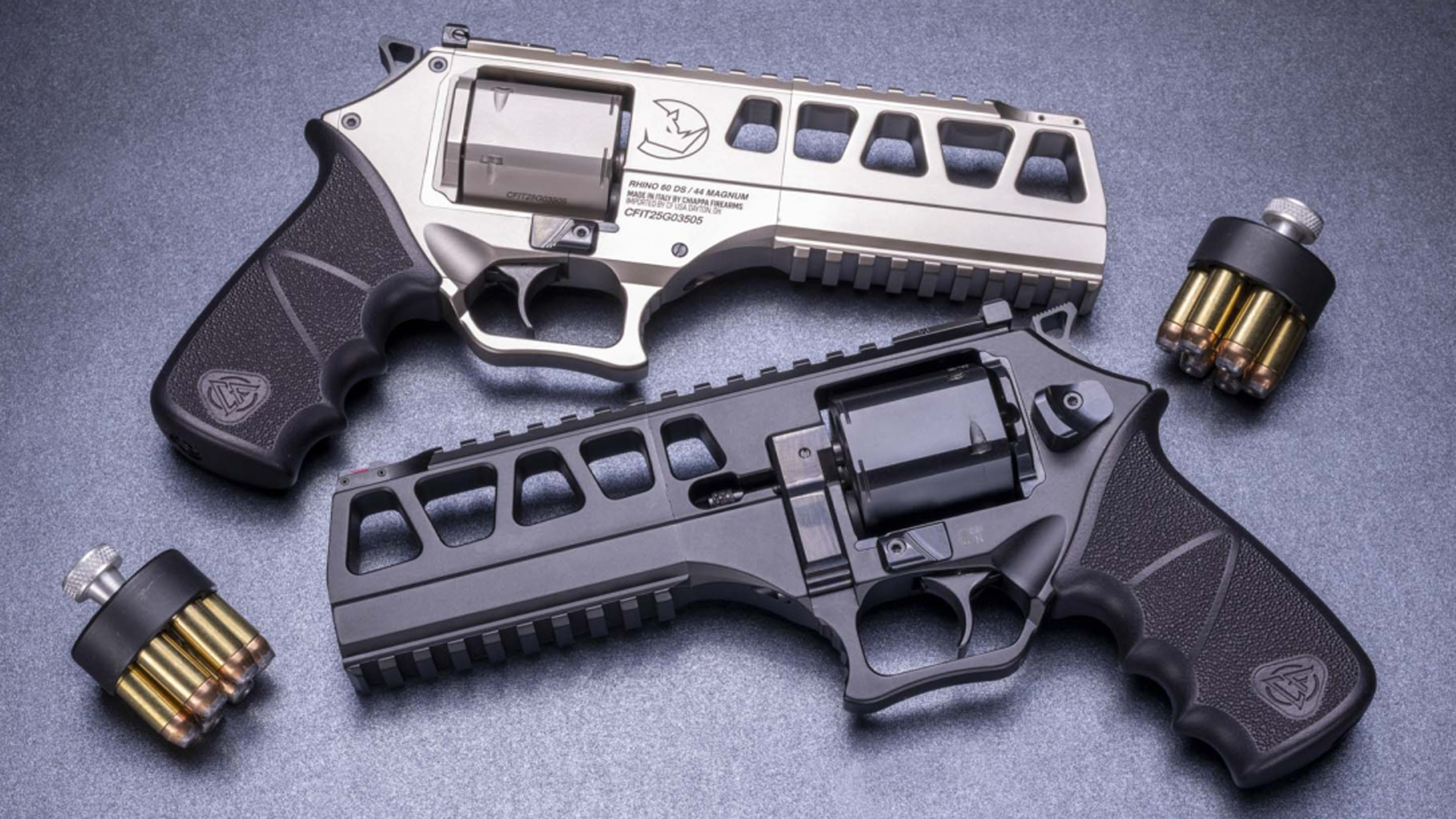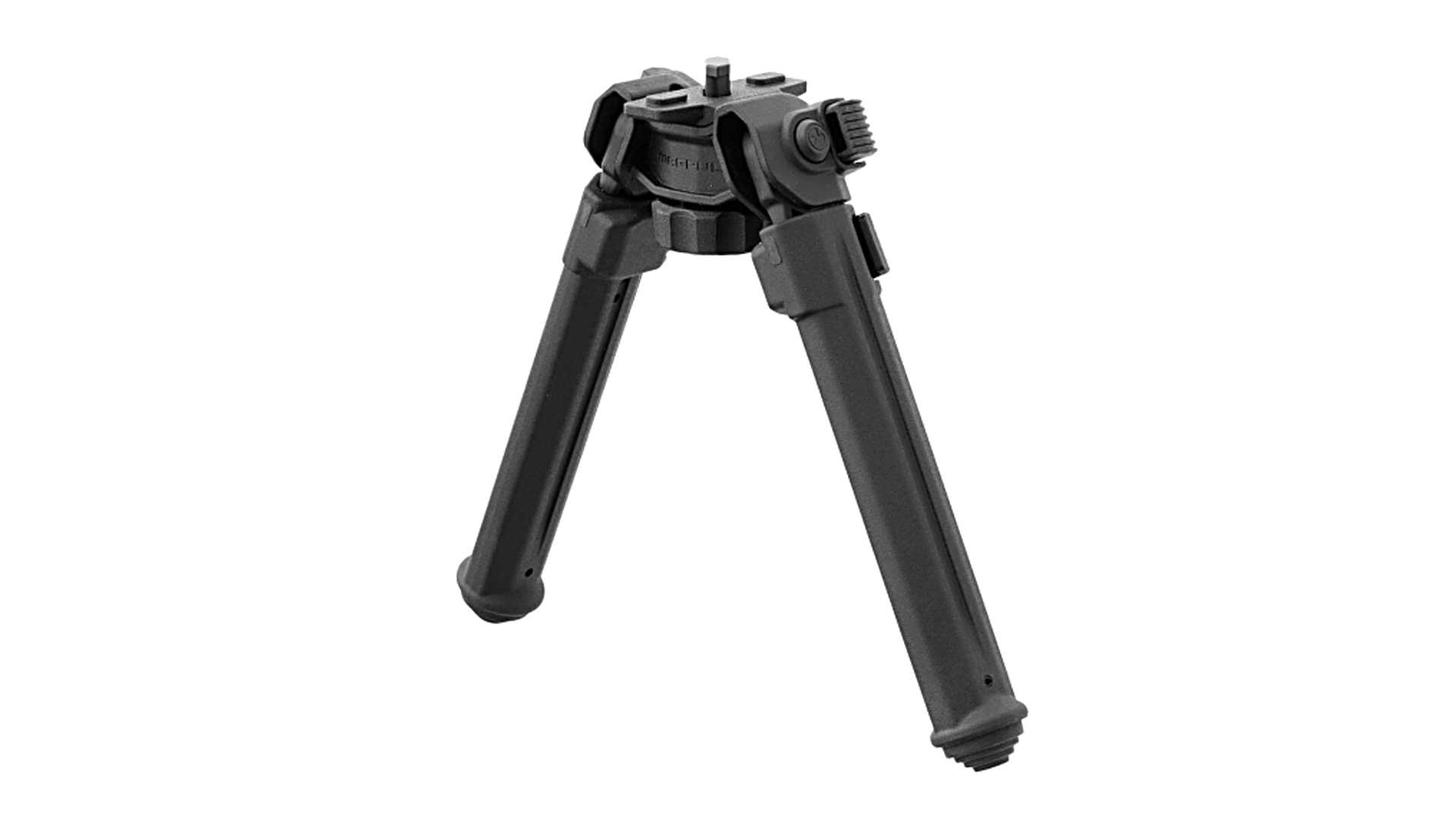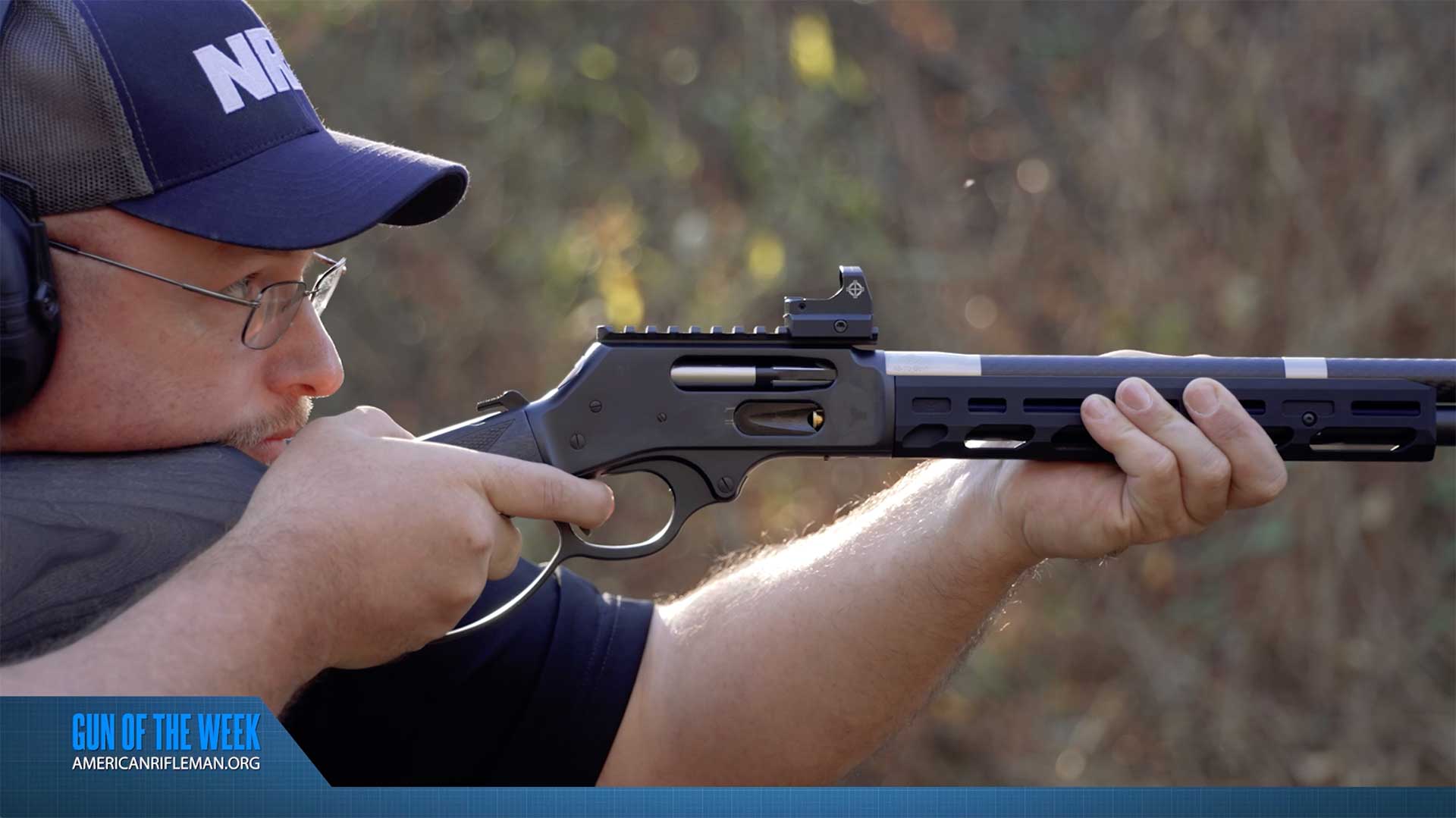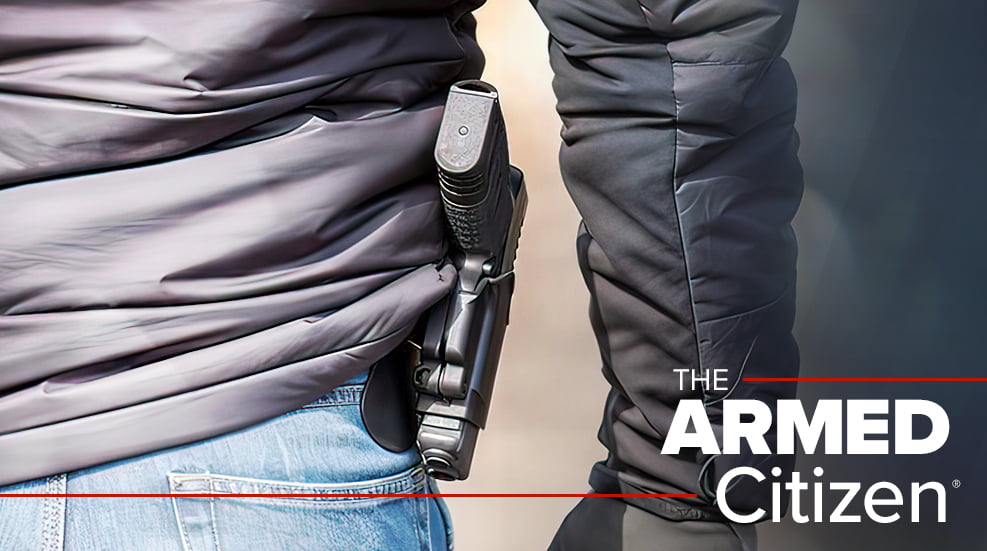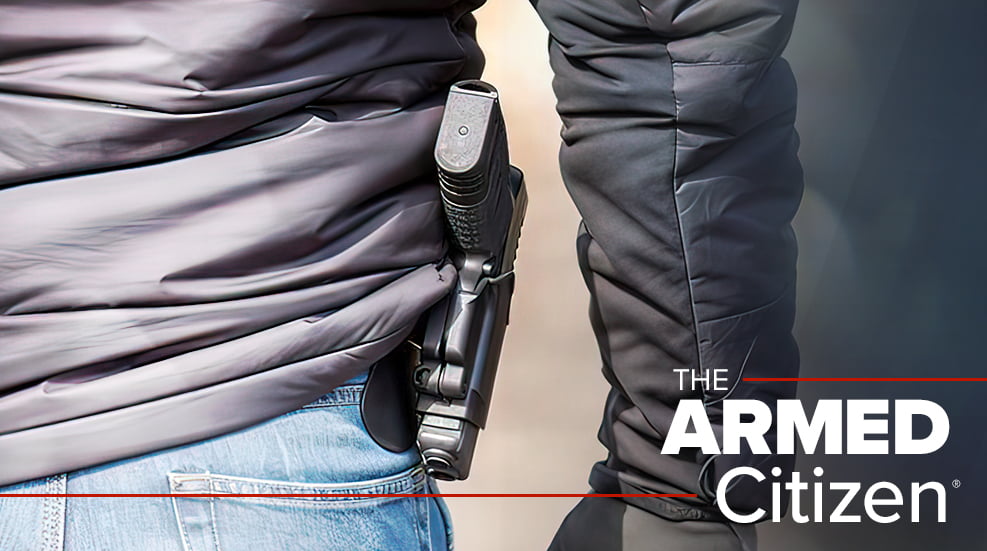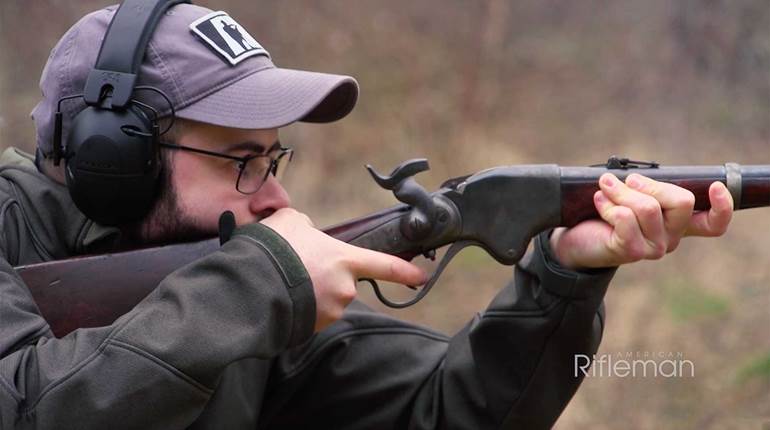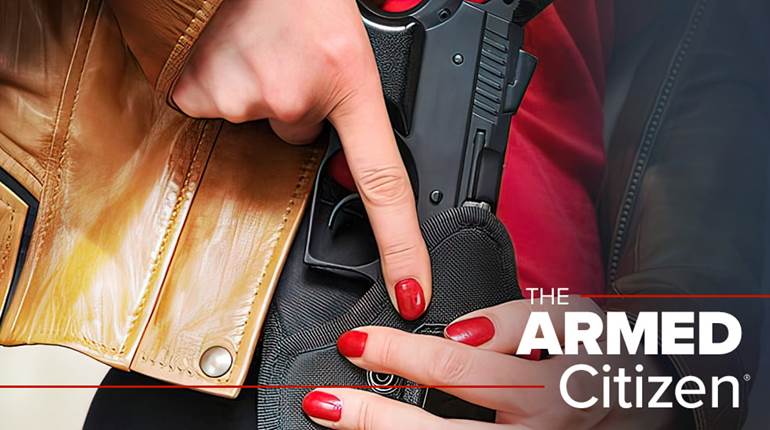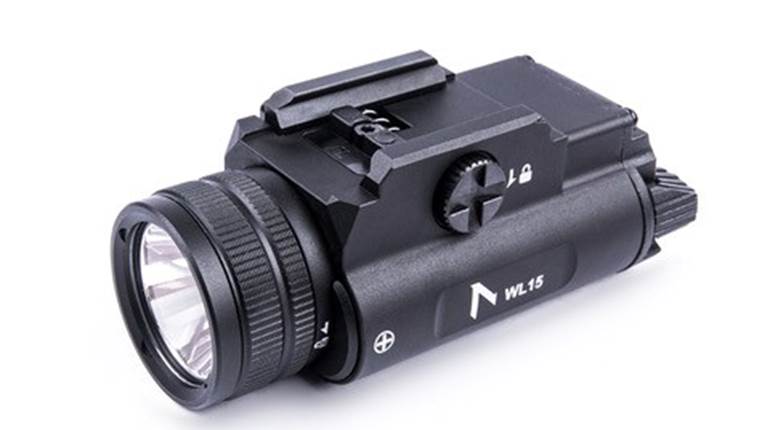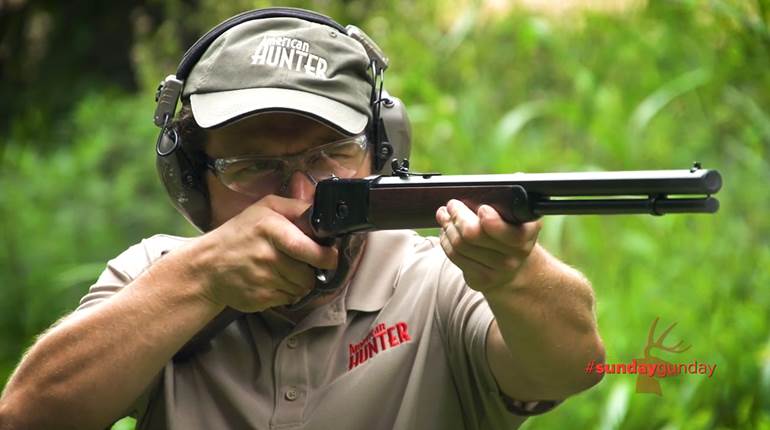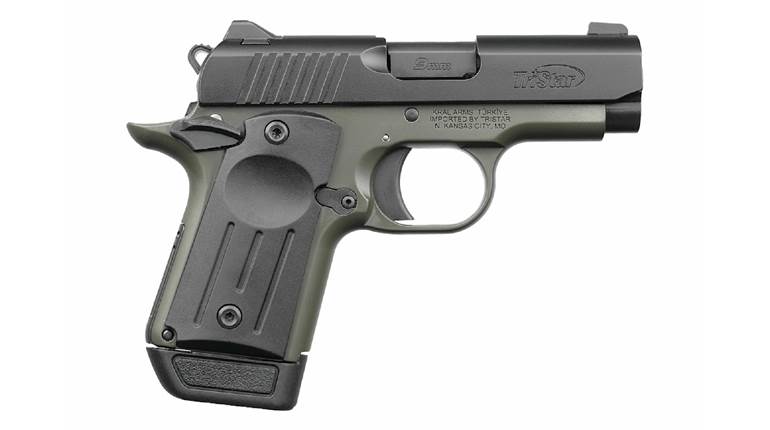
Since the introduction of the original XD-S in .45 ACP, Springfield Armory’s most diminutive, single-stack pistol line has remained among the most popular semi-automatic handguns in the micro-compact concealed-carry category. Indeed, Springfield deserves credit for recognizing the need for a pocket-size platform chambered for a “full-power” cartridge. The rise of the XD-S and similar lines coincides with the surge of American citizens choosing to exercise their Second Amendment right and take the responsibility of personal safety into their own hands. And it’s a testament to the pistol’s design that it has performed reliably in its intended role as a personal defense firearm, and continues to move briskly across gun store counters.
Even with the continued success of the original XD-S, though, the market has changed in the years since its introduction. Armed citizens and concealed carriers have evolved, particularly when it comes to tactics and techniques, but also regarding guns and gear. Much time, energy, ammunition and ink have been spent, and continues to be spent, in an effort to better understand and equip—with hardware and knowledge—today’s self-defense practitioner. And, as it relates to guns specifically, features and components have been identified that increase performance, and, therefore, the user’s odds, in a defensive shooting scenario. Many such enhancements were pioneered in small custom shops or by DIY gunsmiths who saw a need and decided to address it. Now, though, many gun manufacturers are incorporating these innovations into upgraded renditions of their production firearms. This trend is a great benefit to the armed public, and Springfield Armory’s XD-S Mod.2 chambered in 9 mm Luger is the most recent example.
Like all of Springfield Armory’s XD pistols, the XD-S is produced by HS Produkt in Croatia, and can trace its roots to the HS2000 pistol, a version of which still serves as the primary sidearm of the Croatian military. In its Mod.2 rendition, the fundamental recipe for the XD-S is unchanged—it’s a semi-automatic pistol chambered for a full-power cartridge and fitting within physical dimensions that make it easy to carry and conceal for the purpose of armed personal defense. The XD-S is striker-fired in operation—both for the reliability of that system, and its ease of use—possessing a 3.3" barrel and feeding from a true single-stack magazine, again, for its reliability over staggered or double-column designs. To achieve the XD-S, Springfield of course had to find compromises between portability, concealment qualities, ammunition capacity and shootability—a quality that describes a combination of the gun’s ergonomics, natural pointing characteristics, accuracy-enhancing features and how the gun handles during recoil. Regarding shootability, that is where Springfield Armory raised the bar significantly with the Mod.2 version of the XD-S.
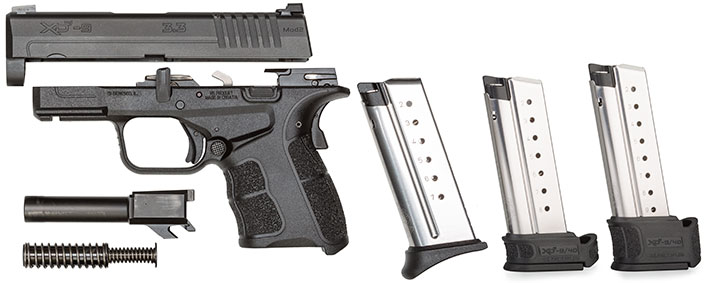
Following the pattern of its original XD-S launch, Springfield introduced its first Mod.2 model in .45 ACP. Despite 9 mm Luger being the most commonly encountered handgun cartridge in use with military, law enforcement and armed citizens today, the .45 ACP still enjoys a large and faithful following. Originally, Springfield hit a home run with the .45-cal. XD-S because it was the first gun of its size—among its “generation” of new guns—to feature the all-American fight-stopping cartridge. It also made sense from a manufacturing perspective; many gun makers still design pistols around the .45 ACP cartridge—the largest common handgun round—and then develop a multi-caliber family by simply reducing the bore diameter and changing the magazine. (Ok, it’s a little more complicated than that, but a platform that can accommodate the .45 ACP can fairly easily be adapted for .40 S&W, 9 mm Luger, etc.) The subject of this review, though, is the 9 mm Luger version of the pistol, which was released in August of this year. Not only is the new XD-S Mod.2 chambered for the preferred defense cartridge of the day, Springfield took a different approach, and designed the entire pistol around the 9 mm Luger cartridge, resulting in a gun that is even trimmer—in length, height and slide width—than its .45-cal. stablemate.
By the numbers, the XD-S Mod.2 in 9 mm is 4.3" tall, 6.3" long and 1.06" wide at the controls—though it’s just 0.91" wide across the slide—and it weighs 21.5 ozs. with an empty magazine. Overall, a very trim package that is eminently easy to conceal and light enough to be carried all day, every day, without becoming a burden. The heart of the pistol is a 3.3" hammer-forged steel barrel with six-groove, 1:10" right-hand rifling and hardened inside and out through Springfield’s proven Melonite nitriding treatment. Two single-stack, stainless steel magazines are included: a seven-rounder with a flared baseplate to accommodate a full, three-finger grip; and a nine-round extended magazine with a grip-extending collar. For maximum concealment, a flat baseplate is also included for the seven-round magazine, allowing for a truly flush fit. Finally, an eight-round magazine with a grip-extending collar is also available for purchase separately from Springfield Armory.
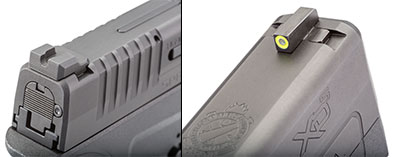
Working from the bottom up, the polymer frame incorporates some of the ergonomic enhancements seen in Springfield’s line of double-stack XD Mod.2 pistols, including the hand-filling swells, shallow finger grooves and effective texture patterns that help keep the fingers and palms locked on. There are also bilateral molded thumb shelves that help anchor the grip during one-handed firing, and guide the thumb toward the magazine release when reloading. The XD-S Mod.2 is further refined with a deeply undercut trigger guard and a deep relief beneath the beavertail—features that, combined, encourage a high shooting grip, and effectively lower the gun’s bore axis closer to the hand. There are also new bilateral recesses near the magazine well that allow access to the magazine’s baseplate to facilitate manual removal, should the need arise.

In terms of controls, the XD-S Mod.2 follows the basic pattern of Springfield’s other XD models. The takedown lever and slide stop lever—both horizontally serrated for purchase—are found on the left side of the frame. The magazine release is bilateral, and the pressure required to depress the checkered metal button is the same, whether engaged from the left or right side. Springfield’s trigger assembly features the central safety lever commonly seen on striker-fired pistols. The safety lever has a rear tab that engages the frame to block an inadvertent trigger pull, and must be depressed in order to fire the gun. Speaking of safeties, the final control is the grip safety lever at the rear of the frame that blocks the trigger bar from traveling rearward. Much like an M1911, this safety must be depressed with a firm firing grip in order to pull the trigger. New for the 9 mm XD-S Mod.2, the grip safety now features a memory bump to ensure positive engagement even with a less-than-perfect firing grip. Internally, the slide assembly also includes a striker-block safety, which is only disengaged when the grip safety and trigger safety are also disengaged by a good grip and positive trigger pull.
Moving on to the slide assembly, the machined steel body is rounded and relieved at the exterior edges, corners and near the muzzle, yielding a very trim component designed for snag-free operation. Six wide cocking serrations on both sides of the slide’s rear provide good purchase for manual slide manipulations. The Mod.2 version of the XD-S features a new external extractor assembly, the primary difference being the spring-tensioned plunger housed between the extractor and the slide’s striker locking plate. It’s not a new system, just new to the XD line, and its use by other manufacturers has proven it to be robust, reliable and easy to maintain.
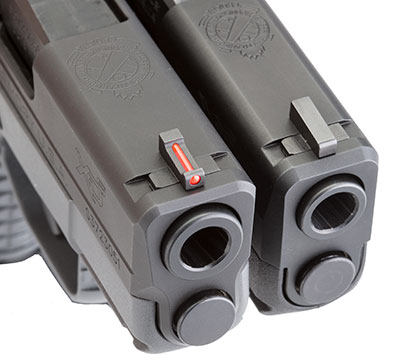
Riding beneath the slide is the barrel and the dual, captured recoil springs. As with other XDs, the spring assembly features a full-length guide rod that actually protrudes forward of the slide and is even with the end of the barrel. Despite being a common feature to the XDs, Springfield is now, rightly, starting to advertise the unique benefit of the protruding guide rod, namely, that it offers a small amount of standoff for the firearm should it come into contact with the target. The standoff may prevent the slide from being forced out of battery, thus allowing the gun to continue cycling without issue. This doesn’t mean the XD-S can be jammed muzzle first into targets and expected to run, but it does provide a bit of margin for incidental contact. Finally, on top of the slide there is a loaded-chamber indicator flag that is raised when a round is in the chamber—a visual and tactile cue—and, of course, the sights. The XD-S Mod.2 is being offered with either a two-white-dot rear and fiber-optic front arrangement, or, my personal preference, a bold, green, tritium-powered front sight from AmeriGlo paired with a black, horizontally serrated U-notch rear—both are effective sighting systems. The sights are made from steel, and both rear units feature cocking ledges to facilitate one-handed slide manipulations.
Disassembly follows the typical XD process: With a fully unloaded firearm, lock the slide to the rear and rotate the takedown lever clockwise 90 degrees. (Note: the takedown lever cannot be rotated unless the magazine is removed—a nice redundant safety feature.) Next, release the slide forward and, with the firearm pointed in a safe direction, pull the trigger to release the slide assembly. Finish pulling the slide assembly forward, off the frame, and then remove the recoil spring assembly and barrel. At this point, fieldstripping is complete and the gun is ready for maintenance. One feature to note while the gun is disassembled is the guide rails. The forward and rear guide rails—integral to the locking block and sear housing, respectively—are serious chunks of metal. It’s another indicator of the XD’s robust design and durable construction.
Regarding that robust design, Springfield Armory literature states that the XD-S Mod.2 in 9 mm underwent a 25,000-round endurance test and survived without a single failure. My own range testing was not quite that extensive, but the evaluation gun did run with perfect performance throughout several hundred rounds of testing. It cycled a wide array of ammunition with aplomb, including some +P-rated loads, regardless of the ammunition manufacturer, bullet weight or bullet type. To be honest, though, I wasn’t a bit surprised. I’ve been shooting XDs of various models for more than a decade with excellent results, and I feel strongly that they are pound-for-pound some of the strongest guns out there.
So besides simply running, how did it perform? For accuracy testing I chose three different types of ammunition: Browning’s 115-gr. training load, Hornady’s Critical Duty 135-gr. +P Flexlock load—the FBI’s new 9 mm duty ammunition—and Remington’s Ultimate Defense Compact Handgun 124-gr. load. Given the intended role of the XD-S Mod.2 and its shortened barrel and sight radius, I opted to test the gun at 15 yds. Full results are tabulated on p. 51, but I can report that accuracy for the little gun was quite good. In my hands, the XD-S achieved an overall average group size of 1.67", a best five-group average of 1.31" (Hornady) and a best five-shot group of 0.89" (Remington). With formal evaluation complete, I tested the gun thoroughly at ranges from 3 yds. to 10 yds. with a variety of drills and by practicing several defensive shooting techniques. This was the kind of work the XD-S Mod.2 was intended for, and this is where it really started to shine.
As I said, accuracy was quite good for a little gun, but it probably could have been even better. Working from the bench, the gun’s 7-lb., 4-oz., trigger pull was not conducive to shooting tight groups. Stepping downrange, however, that trigger felt just about perfect for a small defensive pistol. Like most striker-fired guns, the XD-S has a double-action trigger whereby the trigger pull both completes the cocking cycle (racking the slide only partially loads the striker) and trips the sear to release the striker, firing the gun. A benefit of the design over some hammer-fired semi-automatics is the consistency of that trigger pull, and its reduced weight compared to traditional double-action designs. I’ve always felt that among the polymer-frame, striker-fired semi-automatics, the XD family offered some of the best production triggers, featuring a crisp break after some take-up and a clear audible and tactile reset. The XD-S Mod.2 in 9 mm does not disappoint in that regard.

Similar to the trigger, the AmeriGlo sights that topped my evaluation pistol didn’t hurt benchrest accuracy, but they certainly aren’t target sights. For defensive shooting, though, the bold front and black, U-notch rear are without question my preferred sighting arrangement—and I’m far from alone in that opinion. When getting shots on target quickly is the order of the day, it is really hard to beat that large greenish-yellow dot, which is very easy to visually pick up and drive toward the target. The inclusion of a tritium insert for night-sight capability is also a must-have for many defensive shooters, and it was definitely the right decision by Springfield to include it.
During the course of my evaluation, I shot the gun with all of the various magazine sizes, collars and baseplates (Springfield even sent an eight-rounder for the evaluation). Function, again, was perfect, ejection from the magazine well was consistently brisk and positive, and I really appreciate that even the “flush” seven-round magazine comes equipped with a pinky extension. Of course, the flat, flush-fitting baseplate is included, but the gun is much easier to shoot with a full, three-finger grip provided by the flared baseplate and the collars of the extended magazines. Were I to carry the XD-S, I would probably run it just as it ships—the seven-rounder in the gun and the nine-round magazine as a reload.
Using the aforementioned configurations, the XD-S Mod.2 was comfortable to shoot and easy to shoot fast. The combination of texturing, ergonomic swells and grooves, and the ability to achieve a full grip worked very well to keep the gun in hand and on target. Designing the grip with an undercut trigger guard and deep beavertail effectively promoted a high grip and did much to mitigate the recoil impulse of the little pistol. And those sights, man, those sights, well, I just can’t say enough good things about them.
For that matter, I really can’t say enough good things about the XD-S Mod.2 in 9 mm Luger. I really do appreciate and respect that Springfield took what was already a popular and effective pistol, and refined it to better suit the real-world needs of an increasingly discerning market. Today’s defense-oriented shooters demand highly concealable, highly reliable semi-automatics in full-power chamberings. Springfield Armory’s 9 mm XD-S Mod.2 not only exemplifies the right size, cartridge, sights and ergonomics for its category, it raises the bar for the rest of the field.













